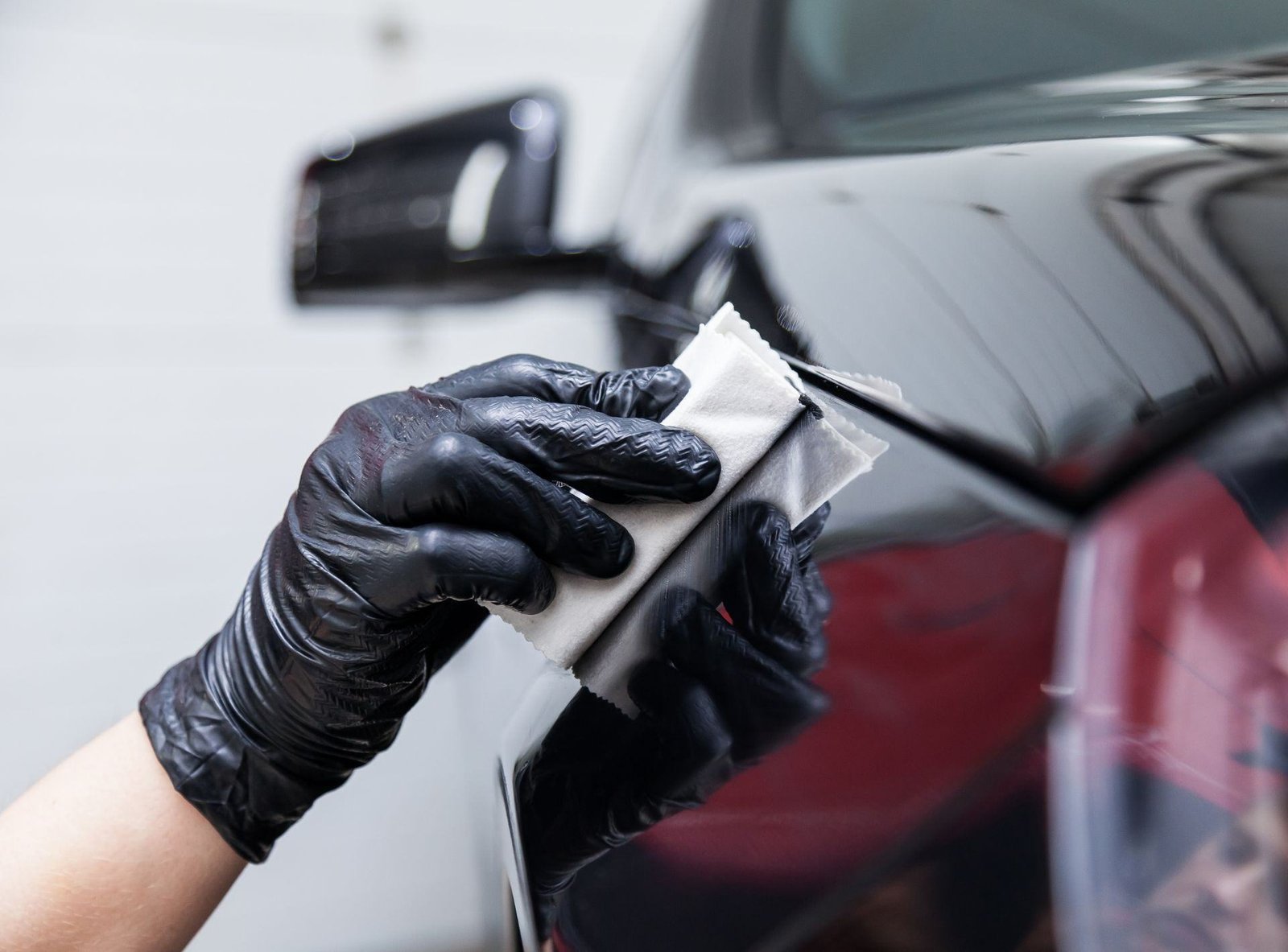In this comprehensive guide from the experts at Compass Auto Detail in Virginia, we will dive deep into the world of ceramic coating. Discover what ceramic coating is, how it works, its benefits, and everything you need to know about maintaining it. Get ready to unlock the full potential of ceramic coating and give your vehicle the ultimate protection and shine it deserves.
What does Ceramic Coating do?
Ceramic coating is a liquid polymer applied to a vehicle’s outer surfaces. It chemically bonds with the paintwork to form a long-lasting and protective layer. This coating produces a hydrophobic surface that repels water, dirt, and other pollutants, as well as resistance to UV radiation, oxidation, chemical stains, and minor scratches. Unlike standard wax or sealants, ceramic coating produces a semi-permanent connection with the paint, providing long-lasting protection.
How does Ceramic Coating work?
Ceramic coatings are created with nanoparticles, silicon dioxide, or titanium dioxide. These nanoparticles create a robust and resilient coating by forming a molecular link with the paint molecules. The coating fills in the paint’s microscopic pores and flaws, resulting in a smoother, more reflective surface. This provides the car with a gleaming and vivid appearance.

What are the advantages of Ceramic Coating?
Enhanced Protection
One of the key advantages of ceramic coating is its superior resistance to environmental conditions. It is a shield between the paint and potentially damaging factors such as UV radiation, acid rain, bird droppings, tree sap, and road filth. The coating keeps these impurities from damaging the paintwork and preserving the vehicle’s look.
Hydrophobic Properties
Ceramic coating has a hydrophobic property, which means that it repels water and other liquids. This feature helps clean the vehicle more easily because dirt and grime slide off more easily. Furthermore, the hydrophobic surface inhibits the formation of water spots and mineral deposits.
Chemical Resistance
A ceramic covering resists chemical stains and etching. It is resistant to harsh chemicals such as gasoline, detergents, and acidic substances, reducing the danger of paint damage.
Enhanced Gloss and Shine
Ceramic coating creates a smooth, reflective surface that gives the car a deep, glossy look. It enhances the paint’s natural color and clarity, giving it a showroom-like look.
Longevity
Ceramic coating provides longer-lasting protection than standard wax or sealants. While typical wax may only last a few months, a properly applied ceramic coating can last between two and five years, depending on the product quality and adequate maintenance.
How long does Ceramic Coating last?
The durability of ceramic coating is determined by several elements, including the product’s quality, the state of the paintwork, and the level of maintenance provided. A professionally placed ceramic coating can typically last two to five years. However, it is crucial to note that the coating will gradually degrade over time due to exposure to external elements and regular cleaning.
Regular maintenance and frequent inspections are critical to ensuring the coating’s effectiveness. Routine maintenance allows you to examine the state of the coating and solve any potential concerns as soon as they arise. Check for locations where the hydrophobic properties or damage has deteriorated.
You should seek expert assistance for touch-ups or reapplication if you see any evidence of wear or damage to the ceramic coating. This will help to retain the coating’s protective characteristics and guarantee that your vehicle continues to benefit from its long-lasting durability.
By being proactive with maintenance and resolving any necessary touch-ups, you can extend the life of your ceramic coating and provide your car with long-term protection.
Do you need to maintain your Ceramic Coating?
While ceramic coating provides exceptional protection, adequate maintenance is required to reap its benefits. Here are some essential maintenance tips:
Regular Washing
Wash your vehicle on a regular basis using non-abrasive procedures and pH-neutral car wash chemicals. Avoid using aggressive chemicals or abrasive brushes, which might harm the coating.
Avoid Automatic Car Washes
Abrasive brushes used in automatic car washes might harm the coating. When possible, use hand washing or touchless car washes.
Use Microfiber Towels
Use soft and high-quality microfiber towels when drying your vehicle to avoid swirl marks and scratches.
Avoid Parking Under Trees or Near Construction Sites
Parking under trees or near building sites should be avoided since tree sap, bird droppings, and construction debris can damage the coating. For further protection, park in shady areas or use a car cover.
Periodic Inspections
Inspect your car regularly for damage or wear on the ceramic coating. Consider getting expert assistance for reapplication or touch-ups if you discover any spots that have lost their hydrophobic properties or exhibit symptoms of damage.

CERAMIC COATING FAQS
- How Many Layers of Ceramic Coating Does Your Car Need?
- Will Ceramic Coating Cure in Cold Weather?
- Does Ceramic Coating Protect Against Rock Chips?
The best Ceramic Coating in Virginia
When it comes to ceramic coating services in Virginia, trust Compass Auto Detail. Our expert technicians specialize in applying high-quality ceramic coatings that provide exceptional protection and enhance your vehicle’s appearance. Located at 6000 Incubator Rd, Hampton, VA, we can bring our expertise to your doorstep for convenient and professional service. Call us at (757) 968-6102 to schedule an appointment and experience the transformative power of ceramic coating. Trust Compass Auto Detail to deliver top-notch results and give your vehicle the ultimate care it deserves.
